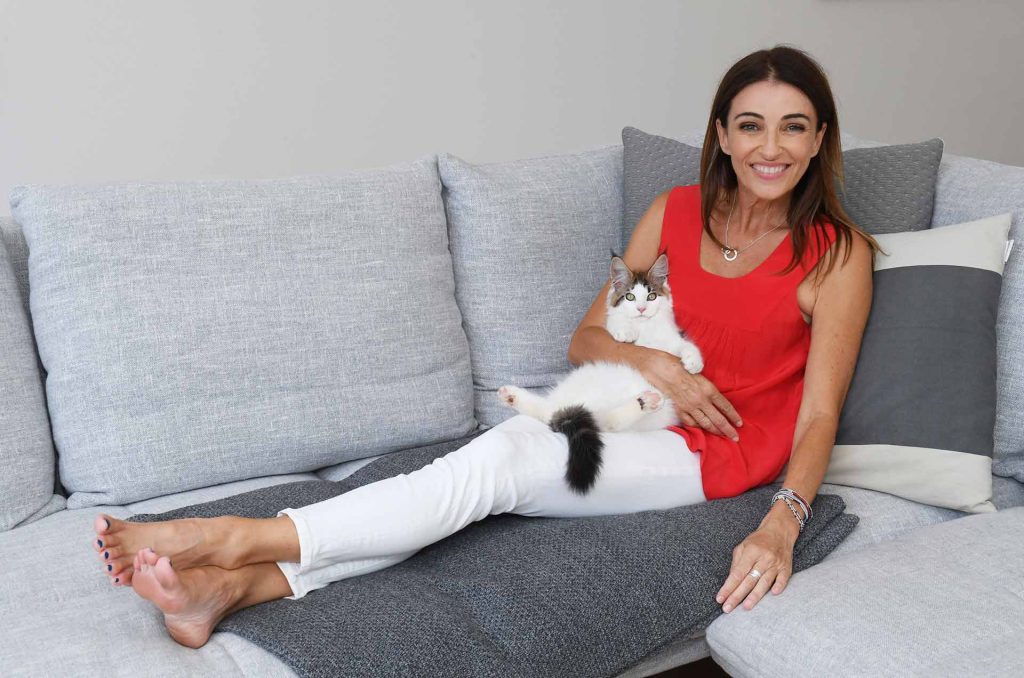With Australia’s vaccine rollout well underway and many of us preparing to head back to the office full time (or maybe even already there), several animal shelters are reporting an increase in the number of animals being surrendered.
According to Australian vet and TV presenter Dr. Katrina Warren, this isn’t surprising.
“The puppies adopted at the start of lockdown are heading into adolescence where behaviours such as chewing, digging, and jumping up start to develop, and people often don’t want to manage that; while others simply feel they don’t have time for their pets anymore,” she explains. “We’ve also got an increasing concern about separation issues as people go back to work.”
But before you give up on your furry family member, there are many simple solutions you can put in place to stamp out problems before they arise.
“Get into a routine now with your pet that’s going to be practical for when you’re back at work,” says Dr. Katrina. “What can you do to make sure your dog is mentally and physically stimulated through the day? What structures can you get into place? Who can help you? Get started now and plan in advance.”
1. TIRE THEM OUT BEFORE WORK
If you’re leaving your four-legged friend alone for eight hours a day, exercise them before you leave in the morning and again when you get home. A tired dog is more likely to relax when you are out. “Play games and be interactive with your pet,” suggests Dr. Katrina. “Ideally, that would be walking your dog before you leave the house and again after you get home.” If your doggo still has energy to burn, but you’re pressed for time, supervise a game of fetch while you get ready with a Automatic Ball Launcher.
2. PRACTICE HAVING ALONE TIME
Ideally, you don’t want to go from home all day to not there at all. Get your dog used to solo time before you’re going to be gone for longer periods. “That means not allowing them to follow you from room to room when you are home, not letting them sit on your lap all day, and making sure they have comfortable solo time,” Dr. Katrina advises. “If they’re crate trained, or trained to a pen or a mat, ask them to go and lie in their safe, quiet place at various times throughout the day.” The same applies for dogs spending their days outdoors – get them used to it gradually.
3. KEEP THEM BUSY
“When you’re putting your dog in a new room or new environment, and every time you put them somewhere on their own, always give them something to do,” says Dr. Katrina. “This helps them make a positive association with being on their own.” You want a hardy, tough, durable enrichment toy that you can put food in, she says – but it’s essential to supervise your dog with their new toy early on. “You need to choose an appropriate toy for your dog’s chew strength and always supervise them with it before you leave them alone with it. You don’t want something they’re going to destroy, which can then pose a choking hazard.”
4. MANAGE SEPARATION ISSUES
There will be dogs whose distress is severe enough to need veterinary care for medication, but for a mild case of separation anxiety, managing the environment can often help them through, says Dr. Katrina. “Give them some home comforts, such as putting on the TV for background noise to mask the silence, which often makes dogs struggle with separation. And don’t make a big fuss when you leave the house.”
5. FIND THEM A FRIEND
“Leaving your pets on their own for that really huge length of time is what worries a lot of people,” shares Dr. Katrina. “Is there an option to ask someone to walk your dog for you during the day? Or perhaps you know someone who’s lonely who would love to dog-sit while you’re working.”
6. PRE-PLAN MEALTIMES
If you’re expecting some late nights and worry you won’t be home to feed your pets on time, there are a wide range of Automatic Feeders available to make sure your furry friend never goes hungry. You can also make sure they never run out of water – especially important during the heat of summer with a water fountains.
With a little time and planning, and a lot of love, getting a new routine in place and teaching your dog how to be on their own comfortably can mean your best friend isn’t left looking for a new home when you return to the office.

